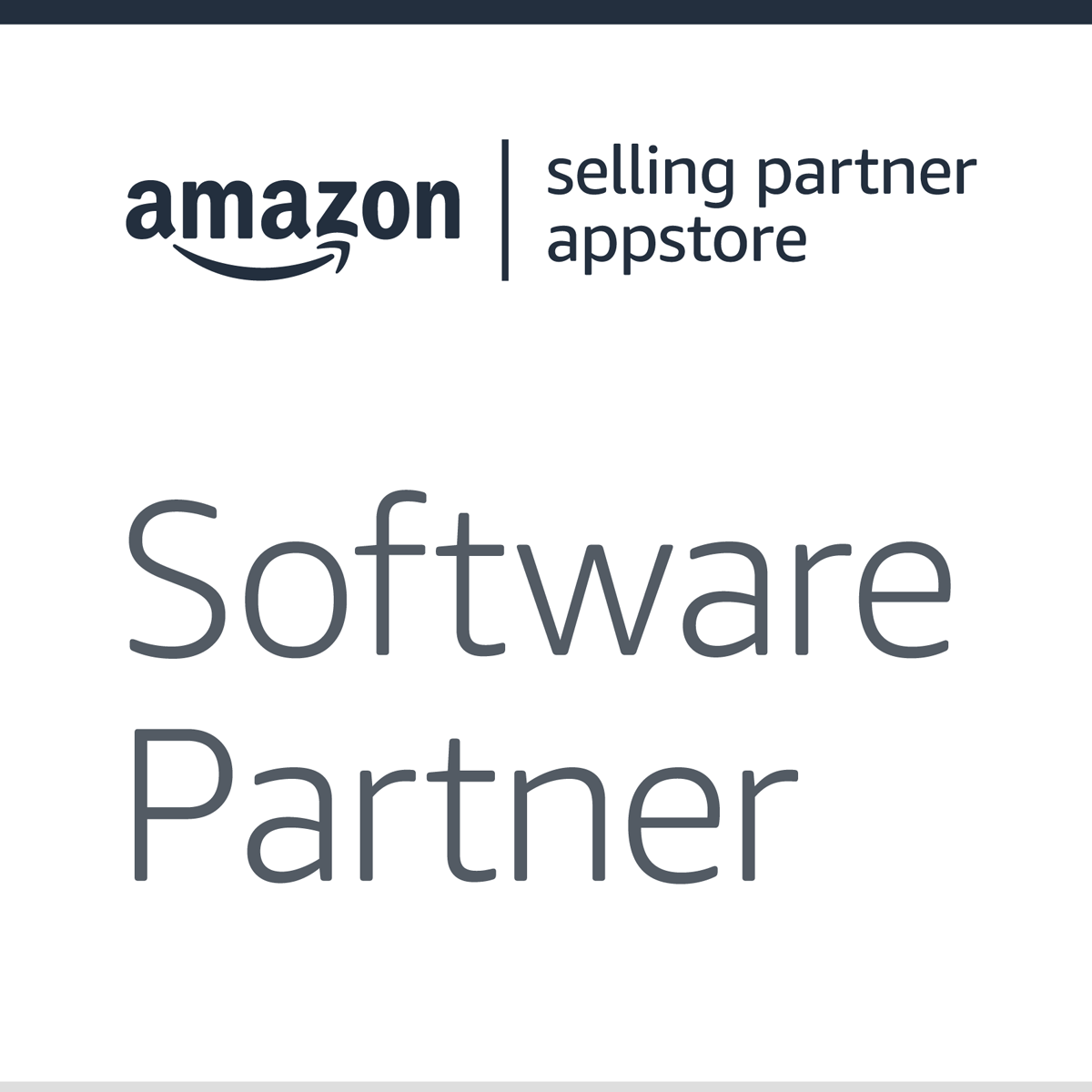Originally published on November 25, 2015, updated October 4, 2023
Menu
Join Our Email List
- Receive our monthly newsletter.
- Stay up to date on Amazon policies.
- Get tips to grow your business.
"The product tasted fake. I could tell it wasn't natural. It was delivered on time though!" - Actual customer feedback
When a seller starts their own label, there is a sense that the control of the product is finally in the hands of the brand owner. That somehow those pesky intellectual property issues, authenticity complaints, used-sold-as-new, item-not-as-described issues will just go away. As can be seen in the above example, however, that’s not the case. This was the most recent customer complaint about the product. Based on this complaint, my client was asked for proof of authenticity for their pumpkin pie protein powder.
Private label is a term for a generic version of a product, typically used to refer to the no-name or white-label, non-branded items traditionally found in department stores or drugstores. It has also been used in recent years to refer to the practice of establishing one’s own brand as an Amazon seller and selling an independent version of a popular branded item.
Private label sellers, however, face several types of risk. Failing in the following Amazon private label requirements could lead to negative feedback, litigation, or suspended listings or accounts:
Retail-ready packaging. Complaints from customers about authenticity can result in suspension actions at the listing or account level due to non-retail-ready packaging. Because of customer expectations, products not labeled appropriately with title, barcode, net weight, quantity, brand, and country of origin will look inauthentic to customers. When this happens, Amazon asks for an invoice, which is difficult when it’s your own label, unless you’ve signed up for the Brand Registry.
eCommerce-ready packaging. A package that travels via parcel through the Amazon fulfillment centers (FCs) undergoes significant abuse.  Once the item arrives at the FC, it is stowed into a bin and sometimes moved multiple times before picking and packing. Once in the package, it gets put onto a truck, then put through the sorting center with the carrier. Then, typically a last-mile carrier loads it up and delivers it to the customer. Packaging must be robust enough to endure the trip while the product remains in pristine and new-looking condition.
Once the item arrives at the FC, it is stowed into a bin and sometimes moved multiple times before picking and packing. Once in the package, it gets put onto a truck, then put through the sorting center with the carrier. Then, typically a last-mile carrier loads it up and delivers it to the customer. Packaging must be robust enough to endure the trip while the product remains in pristine and new-looking condition.
Unsafe or improperly labeled items. Selling unsafe or improperly labeled items can result in warnings or takedown by Amazon or litigation by private parties. From Amazon’s perspective, customers should not be complaining about the product unexpectedly overheating or causing rashes, or any number of other things that can happen if the private-label product is sourced from a disreputable source. Improperly labeled items and items containing toxic chemicals can result in civil litigation under the rules of Proposition 65 in California. Most products have been litigated against, and standard levels of lead, cadmium, phthalates, and others are defined through legal settlements. Not meeting these requirements (e.g. 200 ppm lead) can result in lawsuits of $10,000 to $20,000, which can seriously disrupt your business.
Insufficient quality planning. Brand goals and quality standards should be an intentional process: You intend to sell either a 4-star or 5-star product, or a lifestyle or commodity product. You must intentionally develop a coherent brand identity. Successful labels don't happen by accident. Once this is decided, your product should be tested to ensure it complies. Even products from successful manufacturers can fail to meet your brand goals if a consistent strategy isn’t followed. This can result in lower-than-desired star ratings or sales velocity.
For the most part, these issues do not show up in seller performance metrics. The evaluation criteria are in the returns, feedback, and claims data, which do not show up in your on-time metrics, order-defect rate metrics, and so on. Daily checks of these reports and evaluation of the frequency of issues are essential to protecting your account from action by Amazon. Sometimes, it may be unclear where to look or which trends to follow without help as these trends are not explicitly published in any reports at this time.
But you can protect your private-label brand on Amazon. Concrete steps include the following:
If you only sell a few private label products, monitoring your listings individually won’t be a huge deal. For those of you with multiple products on the marketplace, there is a better way.
FeedbackFive now notifies users when the number of offers on their listings has changed. An increase in the number of offers could mean that a hijacker is selling counterfeit products on your listing. FeedbackFive’s notification email -which you easily set to your schedule- includes details about the new offer plus recommended next steps. Getting a head start against hijackers is crucial, and FeedbackFive gives it to you with this latest product alert.
Activating the alert is simple - just create an account (free trials are available!) and go to the alerts page to turn it on.

Did you know: You can also get detailed analytics for your products with FeedbackFive's review monitoring features.
Amazon is focused on automated methods of enforcing quality on the site. Preventative approaches to protecting your brand will help sellers achieve lasting success with their private-label programs on Amazon and avoid automated and manual enforcement action by quality teams. Previously, it was found in a deep dive that customers had complained about the slightly chemical taste of the pumpkin pie powder. That information could have been used to improve the detail page and set customer expectations regarding the taste of the product.
While it can be risky to launch your own private brand, it helps to know that Amazon's private label requirements for compliance, packaging, and labeling are met by many companies in every industry in the US every day. They make a profit and stay in business; you, too, can meet these safety, regulatory, and quality requirements and succeed.
Originally published on November 25, 2015, updated October 4, 2023
This post is accurate as of the date of publication. Some features and information may have changed due to product updates or Amazon policy changes.
These Stories on Business
14321 Winter Breeze Drive
Suite 121 Midlothian, VA 23113
Call us: 800-757-6840





Copyright© 2007-2025 eComEngine, LLC. All Rights Reserved. eComEngine®, FeedbackFive®, RestockPro®, and SellerPulse® are trademarks or registered trademarks of eComEngine, LLC. Amazon's trademark is used under license from Amazon.com, Inc. or its affiliates.
No Comments Yet
Let us know what you think